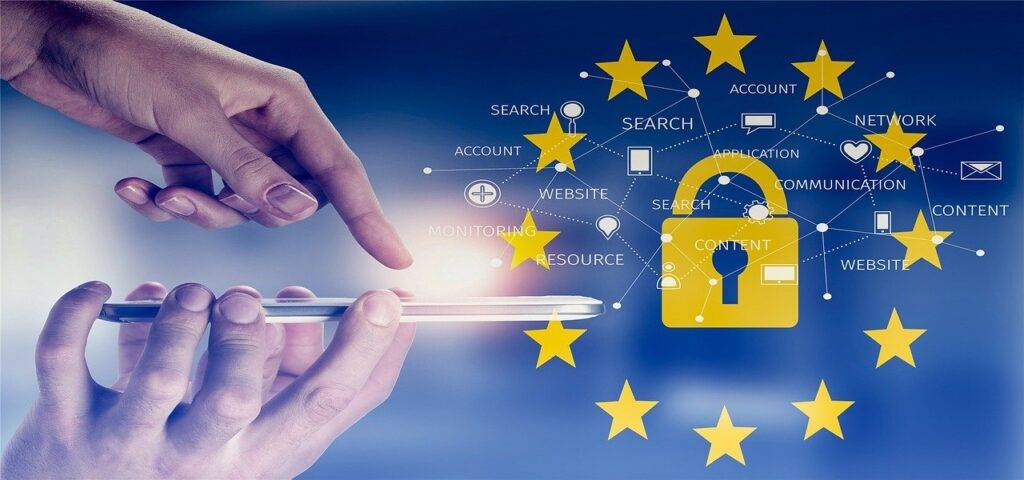According to Pew Research, most Americans believe the government and corporations are tracking their private data!
Maintaining privacy, especially while surfing the Internet, can be challenging. Each day, thousands of cyberattacks get performed with malicious intents. And to deal with it and make yourself more secure online, you have to protect your privacy online.
This article will list eight tips to maintain your privacy and stay more secure online. It might seem like a hard job but in reality, protecting your identity is much simpler.

8 Tips to Maintain Your Security Online
Follow these essential tips, and you will be automatically secure from most of the unaware population:
1. Install an Antivirus
How do I become more secure digitally? The adage solution is installing antivirus software on your device.
Installing antivirus software is essential for maintaining security. Some people avoid such applications because of their price, and they can slow down the computer. But antivirus software does not just protect your system from viruses.
It also provides security from Trojan Horses and ransomware which steal your private information from the computer or device and use it against you to demand money.
Install an antivirus to protect devices and your data.
2. Switch on Your Firewalls
Mostly, a firewall comes inbuilt within your computers. But the issue with a firewall is they slow down the system and hog on resources. So, most of us will switch it off.
But it is necessary to keep them on all the time to ensure the safety of hackers and other malware.
Further, if you’re on mobile devices, an antivirus program should also have a firewall. Moreover, don’t install apps from unknown resources as a precautionary measure.
3. Get a VPN
What are the best practices for security over Internet? There are many, but the #1 is to get a VPN!
When you try to connect to the Internet using a public Wi-Fi, your private data, such as your IP address, is exposed. A virtual private network (VPN) can hide your personal information and make you more secure.
If you’re using Chrome on a computer, you can install a Chrome extension VPN, that can encrypt your internet traffic and reroute it using different servers worldwide, offering enhanced privacy protection. Our recommendation is the VeePN extension.
Furthermore, you can’t download VPN for Chrome for mobile devices. So, you have to use their dedicated VPN apps.
A VPN also protects you from advertisers and trackers for further privacy.
4. Use Unique Passwords for Each Website
Some people commonly use the same username and password for all the websites they log in to. Even a simple brute force attack can guess these passwords!
For example, if one website you have logged in gets hacked, then the hacker can have access to all your other accounts and applications that you have logged in to with the same username and password.
So, if you’re relating here, we advise you to use a unique password for each website or app you use. Moreover, you can also use password managers to store your passwords securely on the cloud.
5. Implement Multi-factor Authentication
People avoid multi-factor authentication since it can be a bit inconvenient. But here’s the catch: you need to turn on 2FA and other authentication options to become more secure online.
Though, you may get irritated. However, the security and privacy you get with this simple trick are higher than single-factor authentication.
You can use it in Gmail, Notes, and Banking Devices applications. For instance, Google Authenticator is an app that facilitates 2FA authentication and is supported by many web apps and services.
You can use multi-factor authentication in both computers and mobile applications.
6. Keep Your Softwares Updated
Whether it is antivirus software or operating systems, it is necessary to update them constantly to keep the security of devices uptight.
Upgrading software does not just improve the features but improves the security level and patches any security loopholes that may have existed earlier.
Therefore, keep your apps updated.
7. Delete Unused Apps and Purge Unnecessary Extensions
While operating on a computer, sometimes extensions and applications get installed without your knowledge. Some developers use scammy techniques and take advantage of your avoidance to fill your device with junk software. And this also holds for mobile devices!
Once in a while, manually review the apps and extensions in your app library and uninstall the ones you don’t remember installing or seem scammy.
8. Toggle Your Privacy Settings
So, what practices help to protect your online privacy? One of the best practices is to become mindful of your privacy!
It is not just your computer privacy settings, but you must check other internet settings. For example, when you open an application, it might ask permission to switch on some settings in your browser. Similar things happen on mobile devices as well.
You should grant the permission but review it once a month. Alternatively, you can clear cache and data to revoke those permissions.
In Summary
These are the eight best tips to maintain your privacy and protect your data online. Once you start following them, they will become a habit, and in no time, you will become far safer than other netizens.
Being a concerned netizen, it’s your right to know how your data is used or sent.
It’s a great and excellent article. I wish you success